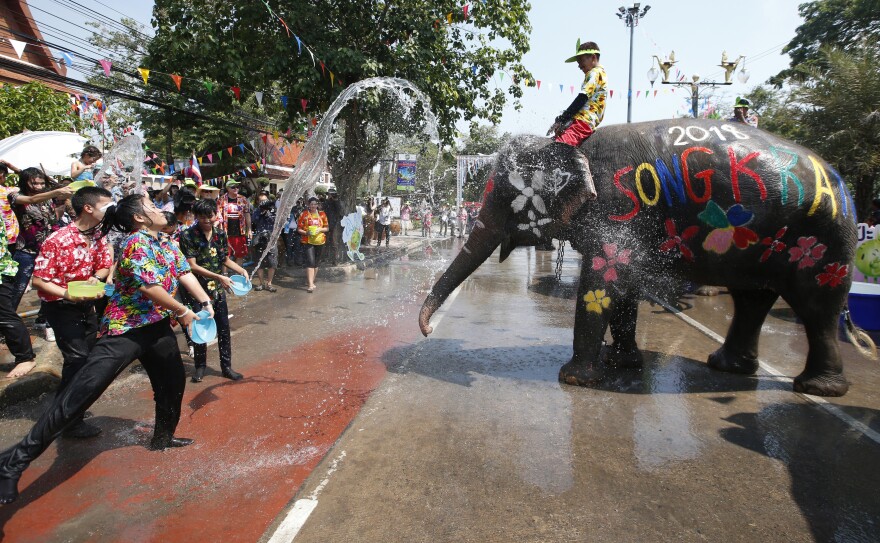When it comes to vacations, do you prefer the mountains or the beach? A set of holidays gets underway later this week in Thailand and when it comes to visitors, it looks like the beach is winning.
It's just about time for Thailand's biggest annual holiday.
It’s called "Songkran," the Thai New Year, and it's perhaps best known for its water festival.
That means squirt guns, water balloons and tossing water on friends, and often strangers. Sometimes it's in gentle cups and sometimes in unsubtle buckets.
It also means Thursday and Friday are government holidays — making it a popular time for travel.
This year, the southern beaches are in high demand.
The local director of the Tourism Authority of Thailand in Phuket told the Bangkok Post he expects visitors to top the holiday numbers of the pre-pandemic year of 2019 — higher by nearly a third — led by domestic travelers.
The outlook is hazier in the mountains of northern Thailand — and so is the air.
In fact, the air pollution is so bad it’s slashed the usual number of holiday visitors in and around the tourist spot of Chang Mai.
The leader of a local hotel association told Reuters Monday that occupancy is running at about 45%, which is roughly half the usual level for the Songkran Festival.
Government officials blame a combination of forest fires and crop burning, not only in Thailand, but also in neighboring Laos and Myanmar.




